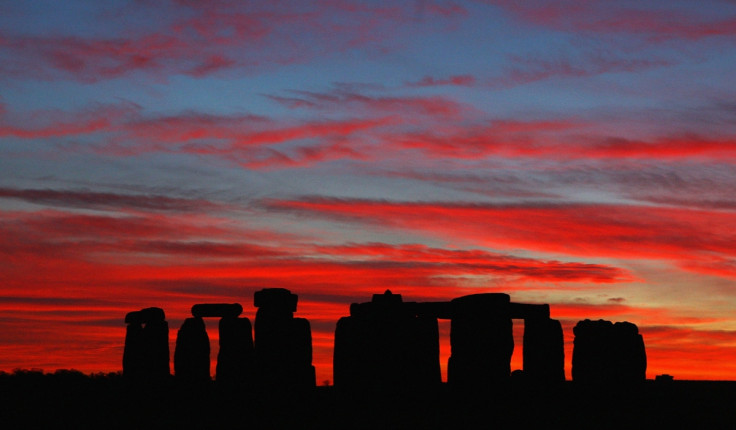Winter Solstice 2014: UK sunset times and science behind longest night of the year

This year's winter solstice will take place on 21 December, marking the longest night and shortest day of 2014.
What is a solstice?
The summer solstice is the longest day and shortest night, while the winter is the opposite. The winter solstice is an astronomical event caused by Earth's tilt on its axis and orbit around the sun.
In the Northern Hemisphere, the winter solstice occurs when Earth is leaning furthest from the sun – it is positioned so the sun stays below the North Pole horizon. From 22 December, the days will start getting longer and the nights shorter.
What time is sunset and sunrise?
In the UK, sunset on 21 December will take place at 3.53pm GMT. Sunrise the following day will take place at 8.04am. This will mean the UK gets seven hours and 49 minutes of sunlight and 16 hours and 51 minutes of night (including twilight). The solstice takes place at the same local time across the globe.
However, it is also worth noting that the sunset and sunrise times are not necessarily the be all and end all of the winter solstice. There is a discrepancy between clock time and sun time that predates the winter solstice.
What will you see?
Not an awful lot. The sun appears lower in the sky at noon – a noontime shadow will be the shortest of the year.
What happened with the six days of darkness story?
Rumours emerged in October that a period covering this year's winter solstice would be plagued by six days of darkness due to an incoming solar storm.
Posted on satirical news website Huzlers, the story titled 'Nasa Confirms Earth Will Experience 6 Days of Total Darkness in December 2014' said the solar storm "will cause dust and space debris to become plentiful and thus, block 90% sunlight". It said this will happen between 16 and 22 December.
The story gained so much attention that Nasa ended up having to dispel it with an official announcement on the agency's Facebook page.
"Since we have been receiving quite a bit of Facebook mail about this, I will answer you all here. Contrary to what you may have read or heard, NASA has in no way issued any statement regarding 3 (or 6) days of darkness in December due to a solar storm. All these rumours are absolutely false.
"I generally won't acknowledge rumours and hoaxes but we have received so much mail on this that I decided to at least mention it here. So, everyone take care and enjoy the 63 days remaining in 2014, all of which will include both a night- and a day-time period."
© Copyright IBTimes 2025. All rights reserved.






















